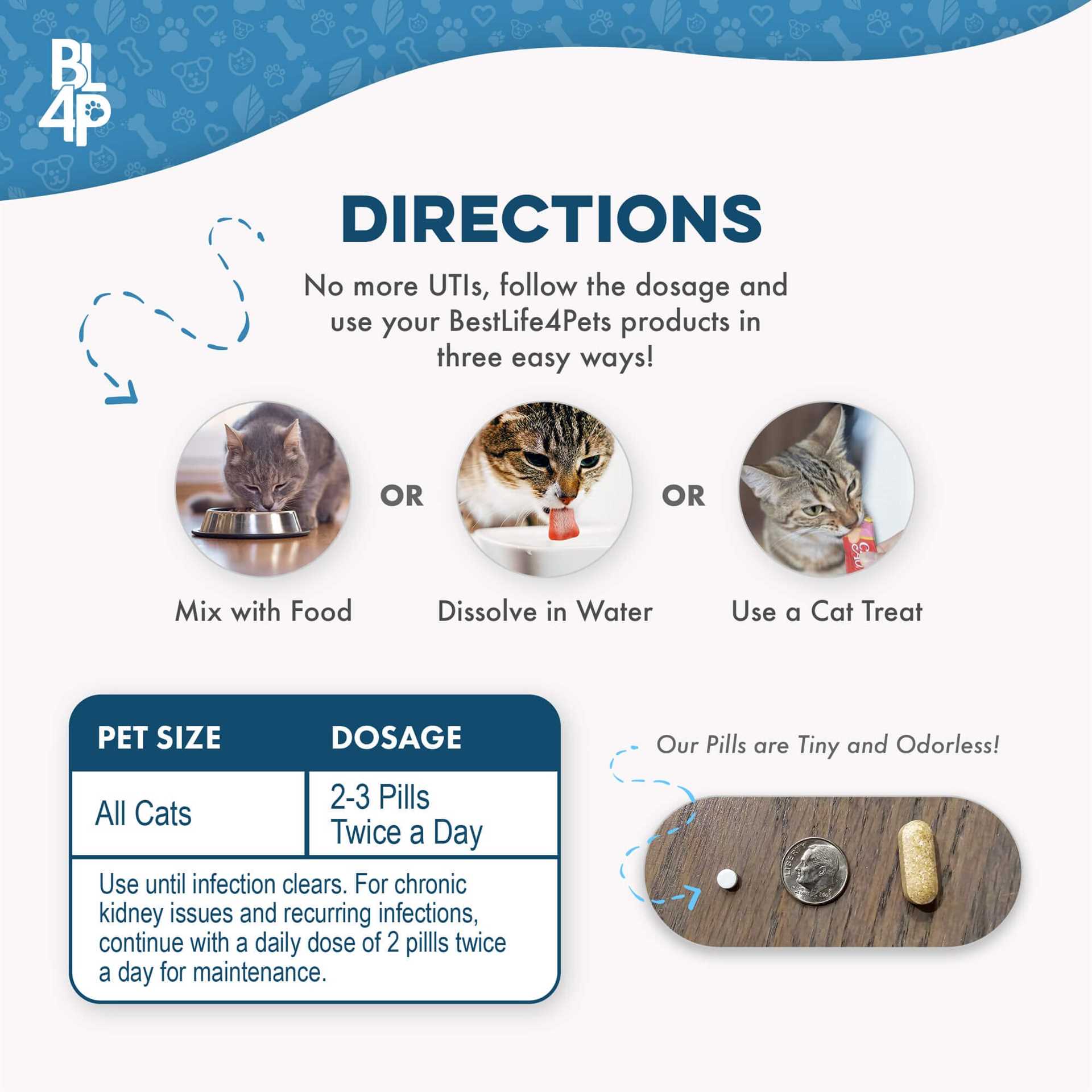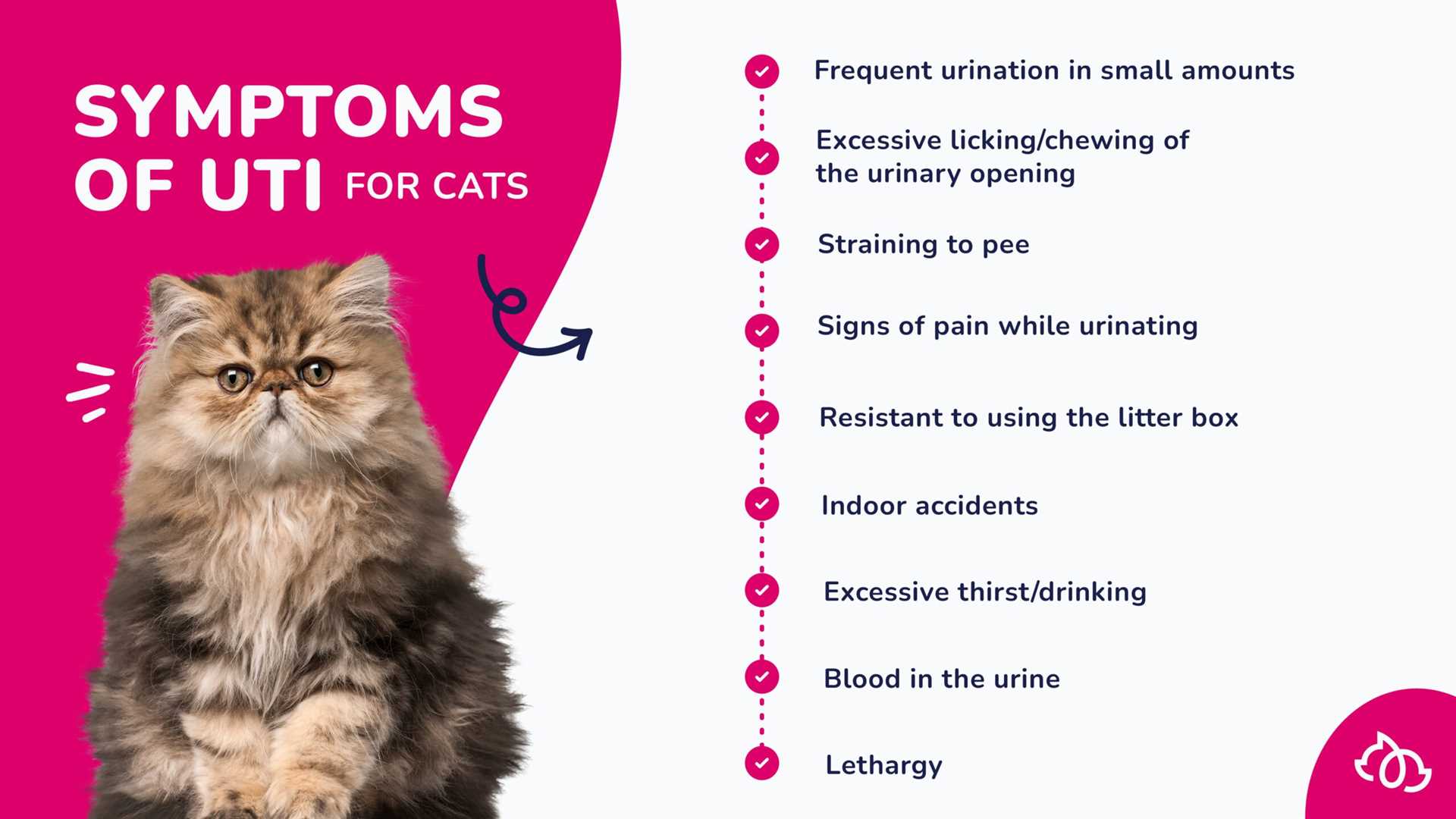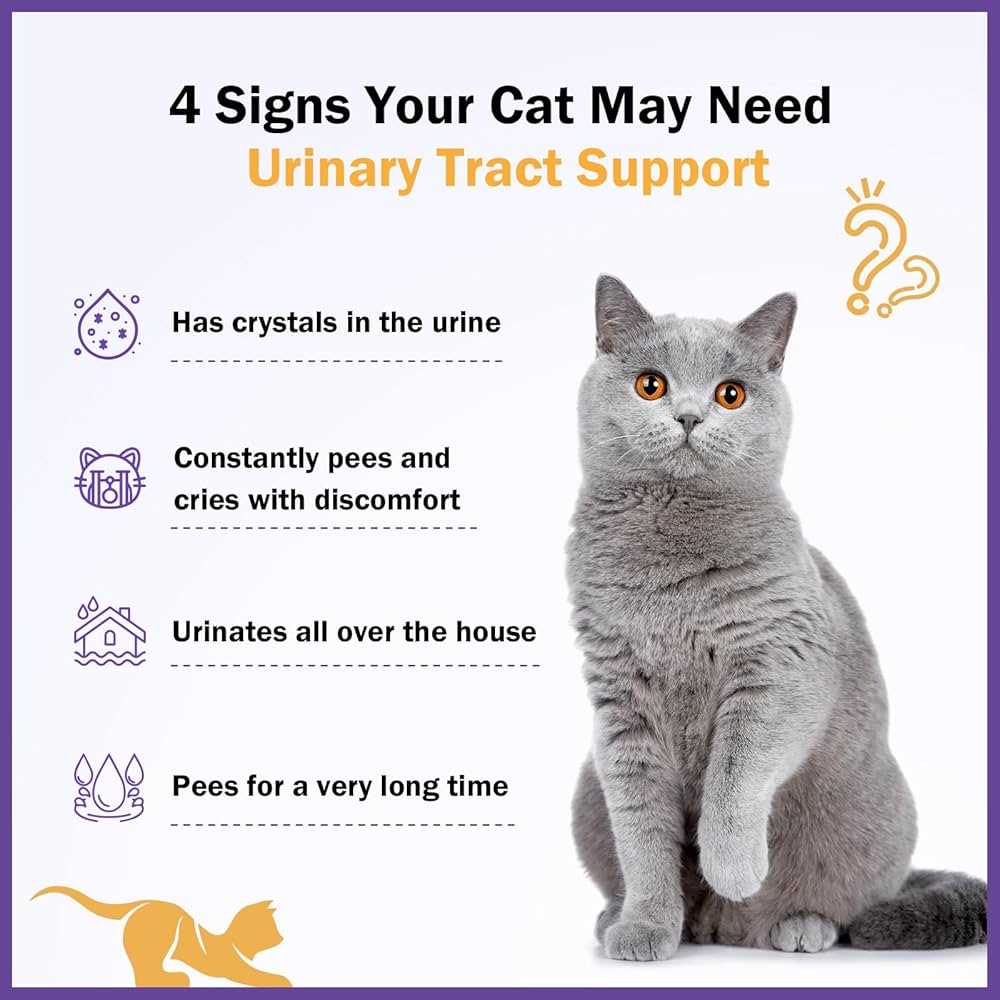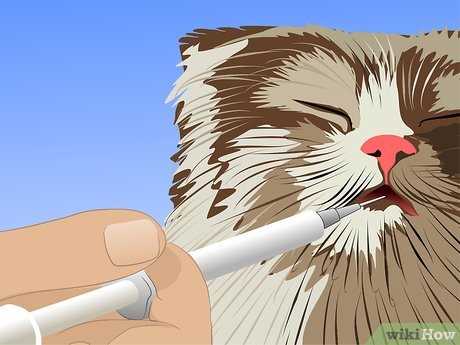



Switching to a high-quality, moisture-rich food is key to supporting urinary health. Look for options specifically formulated to maintain bladder wellness; these often contain ingredients that promote hydration and help dissolve crystals. Wet food is preferable as it naturally increases water intake.
Incorporating fresh water sources can encourage drinking. Consider a pet water fountain, as moving water attracts many furry friends. Adding low-sodium broth to meals can also entice them to hydrate more.
Herbs like cranberry extract are beneficial and can be found in various supplements designed for urinary support. Always consult a veterinarian before introducing new supplements to ensure safety and effectiveness.
Regular veterinary check-ups are crucial for monitoring bladder health and addressing any underlying conditions promptly. Keep an eye on changes in behavior or litter box habits, as these can indicate discomfort or complications.
Recommendations for Feline Urinary Health

Hydration is key. Always provide plenty of fresh water. Consider a pet water fountain to encourage drinking. Wet food is another great option; it contains higher moisture content, aiding in fluid intake.
Dietary Adjustments

Look for specialized food formulated for urinary health. These diets often contain ingredients that help dissolve crystals and maintain a healthy pH balance. Ingredients like cranberries or blueberries can be beneficial; they may help support urinary tract function.
Herbal Remedies and Supplements
Some natural options might include dandelion or marshmallow root. These can promote urination and help flush out the bladder. Always consult a veterinarian before introducing new supplements to ensure they are safe for the specific situation.
Stress management is vital. Create a calm environment with plenty of cozy spots for relaxation. Regular playtime can also help alleviate stress, contributing positively to overall well-being.
Identifying Symptoms of UTI in Cats
Frequent trips to the litter box, often involving little to no urine output, signal a potential issue. If I notice any straining or discomfort while trying to relieve myself, it’s a red flag.
Sudden changes in behavior, like increased vocalization or signs of distress, can indicate something’s wrong. A decrease in appetite or lethargy reflects that something is off.
Another telltale sign is blood in the urine, which can be alarming. If my coat appears dull or if I groom excessively in one area, it may suggest I’m uncomfortable.
Pay attention if I seem to avoid the litter box altogether, choosing inappropriate spots instead. This behavior change usually hints at discomfort or pain.
Monitoring water intake is crucial. A sudden increase or decrease in drinking habits might signal underlying issues. If any of these symptoms arise, seeking veterinary care is advisable to ensure my well-being.
Recommended Diet for Cats with UTI
Hydration is key. I suggest incorporating wet food into meals. This increases water intake, helping flush the urinary tract. Look for high-quality options with real meat as the first ingredient, and avoid fillers.
Consider a diet that is low in magnesium. High magnesium levels can lead to crystal formation in the urine, worsening irritation. Many brands offer specialized formulas designed for urinary health.
Incorporate cranberries into meals or treats. They contain compounds that can help prevent bacteria from adhering to the bladder wall. Check for products specifically formulated for feline health.
Here’s a quick reference table for dietary recommendations:
| Food Type | Benefits |
|---|---|
| Wet food | Increases hydration |
| Low magnesium kibble | Reduces risk of crystal formation |
| Cranberry supplements | Prevents bacterial adhesion |
Always consult your veterinarian before making changes to ensure the best outcomes for health. If travel is on the horizon, check out the best sedative for cats for travel to keep things stress-free.
Hydration Strategies for Cats with UTI

Increase water intake by incorporating wet food into the meals. Canned varieties typically contain higher moisture levels, which aids in flushing out the urinary tract.
Consider adding water or low-sodium broth to dry kibble for a tasty, hydrating mix. This not only encourages drinking but also enhances flavor.
Water Stations
Provide multiple water bowls throughout the home to make hydration more accessible. Cats often prefer drinking from fresh sources, so change the water regularly.
Utilize a pet water fountain. Many felines are attracted to running water, which can stimulate them to drink more. Ensure the fountain is cleaned frequently to prevent bacteria growth.
Flavor Enhancements
Add a splash of tuna juice or chicken broth (low-sodium) to the water bowl, enticing the furry friend to drink. Just ensure it’s free from additives that could irritate the bladder.
Experiment with different types of bowls–ceramic, glass, or stainless steel can affect taste preferences. Ensure bowls are shallow and easy to access.
By implementing these strategies, hydration becomes a natural part of daily life, promoting better urinary health and overall well-being.
Safe Medications for Treating UTI in Cats
Veterinary-prescribed medications are often necessary for addressing urinary tract infections. Common options include:
- Antibiotics: Amoxicillin and Clavamox are frequently used to combat bacterial infections. Always ensure the dosage is appropriate for size and health.
- Anti-inflammatory drugs: Non-steroidal anti-inflammatory medications can help reduce discomfort and inflammation in the urinary tract.
- Antispasmodics: These can alleviate spasms in the bladder, providing relief from pain.
Consulting a veterinarian is crucial before administering any treatment. Self-medication can lead to serious complications.
Natural Remedies
Some pet owners explore natural options, but caution is essential. Certain herbal remedies may assist in soothing urinary issues, such as:
- Cranberry extract: May help prevent bacteria from adhering to the bladder wall.
- Dandelion leaf: Known for its diuretic properties, promoting urination.
Always discuss natural options with a veterinarian to ensure safety and efficacy.
Home Remedies to Support UTI Recovery in Cats

Increase water intake by providing fresh, filtered water. Cats often prefer running water, so consider a pet water fountain. This encourages hydration, essential for flushing out the urinary tract.
Add a splash of low-sodium chicken broth to water or offer ice cubes made from broth as treats. This can entice a feline to drink more fluids.
Introduce cranberry extract, known for its benefits in urinary health. Administer it according to dosage instructions from a vet. It may help to acidify urine, creating an unfavorable environment for bacteria.
Consider adding probiotics to support gut health. Healthy digestion can influence overall wellness, potentially aiding recovery. Look for formulations specifically designed for felines.
Herbal remedies like dandelion or marshmallow root can be beneficial, but consult a veterinarian before introducing any new herb to ensure safety and appropriateness.
Maintain a stress-free environment. Stress can exacerbate health issues, so ensure a calm space with cozy resting areas and minimal disruptions.
Regularly clean litter boxes to encourage proper bathroom habits. A clean environment promotes frequent urination, which helps flush out toxins.
For those interested in tank care, adjusting aquarium parameters like pH can be crucial. Check out this resource on how to lower alkalinity in reef tank.
When to Consult a Veterinarian for UTI Concerns
Immediate attention is necessary if any of the following signs are observed: frequent attempts to urinate without success, blood in urine, excessive licking of the genital area, or signs of pain such as vocalizing or hiding. These symptoms indicate a potential emergency that requires professional evaluation.
If lethargy, lack of appetite, or vomiting accompanies urinary issues, it’s crucial to seek veterinary care. These can be signs of a more severe underlying condition that needs prompt diagnosis and treatment.
Routine Check-ups
Regular veterinary visits are recommended, especially for those at risk of developing urinary tract issues. Annual check-ups can help catch early signs of health problems. Discuss any changes in behavior or urinary habits during these visits.
Behavioral Changes
Any noticeable changes in mood or behavior can signal discomfort or illness. If a once-active feline becomes withdrawn or exhibits signs of distress, consult a veterinarian. Prompt action can lead to better outcomes.
FAQ:
What dietary changes can I make for my cat with a UTI?
When your cat has a urinary tract infection (UTI), it’s important to consider dietary adjustments that can help support their recovery. One effective approach is to increase their water intake, as hydration helps dilute urine and flush out bacteria. You can do this by offering wet cat food, which has a higher moisture content than dry food. Additionally, some cat owners find success with specialized urinary health diets that contain ingredients designed to promote urinary tract health. These diets often include controlled levels of minerals like magnesium and phosphorus, which can help prevent the formation of crystals in the urine. Always consult your veterinarian before making significant changes to your cat’s diet to ensure it aligns with their specific health needs.
Are there any supplements that can help a cat with a UTI?
Yes, certain supplements may aid in the management of urinary tract infections in cats. One commonly recommended supplement is cranberry extract, which is thought to help prevent bacteria from adhering to the bladder wall, thereby reducing the risk of infection. Another option is probiotics, which can support overall urinary health by promoting a balanced gut microbiome. Omega-3 fatty acids may also be beneficial as they have anti-inflammatory properties, potentially helping to soothe the urinary tract. However, it’s essential to consult your veterinarian before introducing any supplements to ensure they are safe and appropriate for your cat’s specific condition. They can recommend the right dosages and products based on your cat’s health profile.










